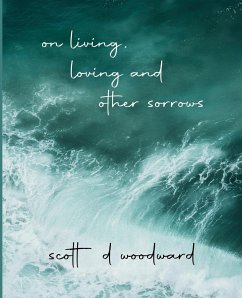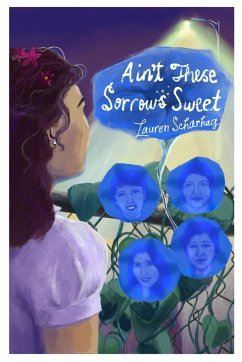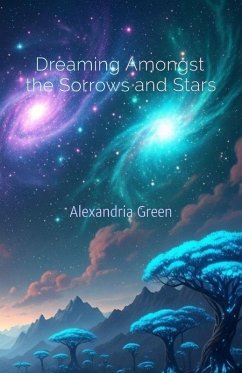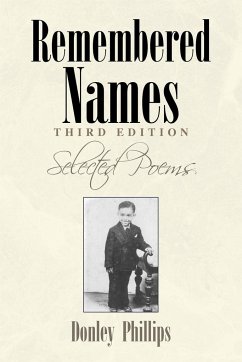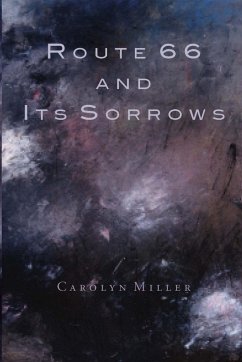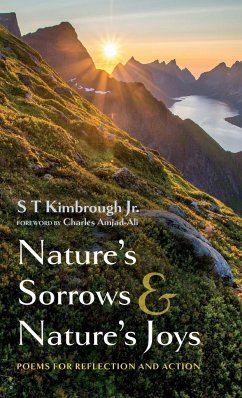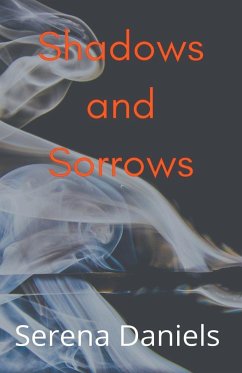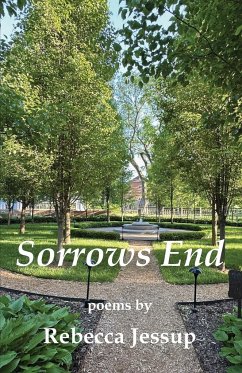
Sorrows End
Versandkostenfrei!
Versandfertig in 1-2 Wochen
13,99 €
inkl. MwSt.

PAYBACK Punkte
7 °P sammeln!
Jessup's wry vernacular reprise of Shakespeare's Sonnet 30 recalls the Bard's advice to the heartbroken: if in the midst of regretful or sorrowful introspection we can bring to mind a beloved friend, "all losses are restored and sorrows end." Steadfastness in the face of sorrow is the essence of this slim chapbook. In the opening poem, a stalwart pink geranium stands firm against the chilly arrival of winter in southern Indiana. Perched on its jaunty, slender cane, it refuses to founder. In the volume's wonderful concluding poem, "Unripe Saint," the poet is gathering blackberries. She decides ...
Jessup's wry vernacular reprise of Shakespeare's Sonnet 30 recalls the Bard's advice to the heartbroken: if in the midst of regretful or sorrowful introspection we can bring to mind a beloved friend, "all losses are restored and sorrows end." Steadfastness in the face of sorrow is the essence of this slim chapbook. In the opening poem, a stalwart pink geranium stands firm against the chilly arrival of winter in southern Indiana. Perched on its jaunty, slender cane, it refuses to founder. In the volume's wonderful concluding poem, "Unripe Saint," the poet is gathering blackberries. She decides not to pick one blackberry, but to leave it on the bush, pausing instead to admire it, regarding it as a tiny instance in the unity and continuity of the natural world - blackberries, birds, bears, saints - and by extension, the unity and continuity of human lives and life stories. The poet-songwriter Paul Simon was one of Rebecca's heroes. There is no place called "Sorrows End," but an island off the mid-coast of Maine that she often visited as a child remained a sacred place for her throughout her life, even as she saw it "slip-sliding away," as precarious lands' ends - and personal and global lives and destinies - will do. Twenty years after the death of her beloved brother, she reports that in the world as she finds it, "Poverty increases and rumors gain speed." The volume's middle sections include several skillfully rendered dramatic narratives and monologues featuring literary and Biblical figures (Shakespeare, W.B. Yeats, Rachel's mother, Eve). "Long After, Eve Returns" is a brilliant poem - a delightful touch Disneyesque, and also quite moving. Jessup imagines a middle-aged Eve slipping past the fearsome guardian angel's flaming sword and revisiting Eden, where she finds her animal friends still happily residing ("... the leopard, the gray wolf, the gazelle / stroll over to nuzzle greetings, ask me / how I am, to thank me for their names ..."). In "Earth-like planet discovered only 20 light-years away," she imagines a handful of fleeing survivors on a post-apocalyptic spaceship looking wistfully back at the ruins of their earthly home. Rebecca Jessup believed that her poems speak for themselves. Her persistent themes - love and loss, friendship and family, selfless compassion, sorrow for human and animal suffering and for the perilous state of the natural world - are of course common to much contemplative poetry and are in keeping with her profoundly humanistic worldview. The presence of a highly conscious intellectual and literary life is quietly evident throughout her work, but her poems are not obscure, nor are they profane, and are appropriate to read to or with children. Her poetry is deeply spiritual, grounded in religious values, and is also worldly wise - like all literature of the first rank, rich with detailed, insightful, telling observation. Rebecca Jessup was a masterful poet, fully in technical control of her craft. Her poems are beautiful, as immediate and accessible as beautiful music, with breathtaking lyric texture and resonance. If you love poetry, read Rebecca Jessup.





